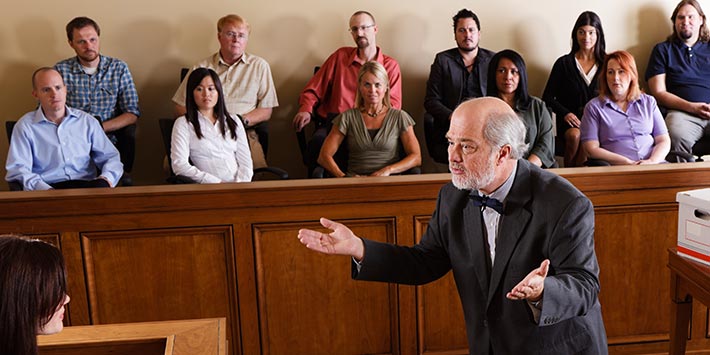South Carolina criminal trials – When someone is formally accused of a crime (charged), they stand accused, but legally they are presumed innocent until they are proven guilty or they enter a plea of guilty. If the defendant does not plead guilty the government has the burden to prove the defendant’s guilt beyond a reasonable doubt. The method of providing this proof is a criminal trial.
Criminal trials are often portrayed on television with some accuracy, certain wild exaggerations, and just plain fiction. Further, different jurisdictions tend to have different rules and customs regarding how a criminal trial is conducted. Sometimes these are small differences but sometimes they are much larger. We have written about North Carolina criminal trials in the past, so this blog will focus more on South Carolina criminal trials. We will talk about some of the things that are the same, and some of the things that are different. Like all our blogs, this is intended for general informational purposes only, and not as a substitute for the advice and counsel of a criminal defense attorney.
South Carolina criminal trial procedures that tend to be common
There are certain aspects of criminal trials that are common to most if not all jurisdictions because they are essential to the process. This includes but is not limited to the following:
- Adherence to the rules of evidence – All jurisdictions have rules of evidence that are outlined and must be followed regarding how exhibits and witness testimony must be admitted. South Carolina criminal trials are no different.
- Questioning of witnesses – For the most part direct examination, cross examination, and questioning for the purpose of impeachment follows the same pattern and method in South Carolina as it does in most other jurisdictions.
- Closing statements – The closing statement is a very important part of the criminal trial where the attorneys have an opportunity to make one last presentation directly to the jury, summarizing the evidence and making an argument. South Carolina’s procedures for a closing statement seem to follow how most other jurisdictions do it.
Distinctions from North Carolina criminal trials
There are a few distinctions in South Carolina criminal trials from North Carolina criminal trials. We are not going too much into the specifics of what they are, but we will give a few examples:
- South Carolina is a standing jurisdiction (like you usually see on television) meaning, when the attorney is asking direct and cross examination questions, they do it while standing. North Carolina however is a sitting jurisdiction and those same questions are asked by the attorney from a seated position.
- Jury selection is different. In South Carolina jury selection is led by the judge, and the judge is the person who asks potential jurors questions. In North Carolina, it is the attorneys that get to ask potential jurors the questions.
- All trials are jury trials, unlike in North Carolina where all misdemeanors begin in District Court with a bench trial (a trial where the judge acts as the jury) with the option to appeal to Superior Court to have a jury trial.
There are several nuisances when it comes to criminal trials, anywhere. Trials are just one of the many complicated aspects of criminal law. If you have been charged with a crime, you should probably seek professional help and hire a criminal defense lawyer.

